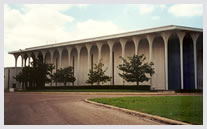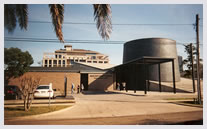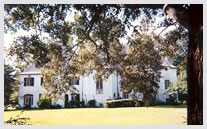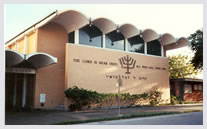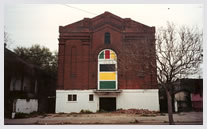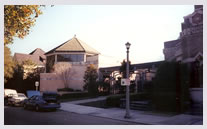Jewish Tours
We offer 1 local Jewish tour and several out-of-town Jewish tours. The tours we offer are:
- Jewish Tour A - Local
- Jewish Tour B - Western Outskirts and Southwestern Suburbs of Houston
- Jewish Tour C - Southeastern Outskirts and Northern Suburbs of Houston
- Jewish Tour D - Galveston
- Jewish Tour E - Schulenburg and Hallettsville
- Jewish Tour F - Hempstead, Brenham, Navasota, and Bryan
- Jewish Tour G - Wharton, Bay City, and Victoria
- Jewish Tour H - Baytown, Beaumont, Port Arthur, and Orange
- Jewish Tour I - Columbus, La Grange, and Austin
- Jewish Tour J - San Antonio, Luling, and Gonzales
- Jewish Tour K - Edinburg, McAllen, Harlingen, Brownsville, South Padre Island, and Corpus Christi
- Jewish Tour L - Tyler, Texarkana, Jefferson, Marshall, Longview, and Kilgore
- Jewish Tour M - Harker Heights, Waco, Fort Worth, Flower Mound, Colleyville, and Arlington
- Jewish Tour N - Madisonville, Palestine, Corsicana, Ennis, Dallas, Richardson, Plano, Frisco, and Lewisville
- Jewish Tour O - Lake Charles, Lafayette, Baton Rouge, Metairie, and New Orleans, Louisiana
- Jewish Tour P - Biloxi, Mississippi, Mobile, Alabama, Pensacola, Tallahassee, and Jacksonville, Florida, Savannah, Georgia, Charleston, South Carolina, Atlanta, Georgia, Birmingham, Alabama, and Jackson and Natchez, Mississippi
The local tour is 6 hours. It normally begins at 9:00 AM and ends at 3:00 PM. However, we can be flexible with the scheduling. We try to schedule such tours between the rush hours. The tour can be shortened upon request; remember one has to delete sites with a shortened tour. The out-of-town tours include 7 one-day tours ranging from 6 to 11 hours. These are Tours B - H. We also offer multiple day tours ranging from 2 to 9 days. These are Tours I - P.
The tours begin at the Houston Visitors Center in downtown. Please click here to be connected to the address and parking information. As an alternative, we can start at the Jewish Community Center at 5601 South Braeswood Boulevard, Houston, Texas 77096.
All tours include narratives of the past and present Jewish populations related to the cities that are being toured.
Please be aware that no Kosher certified restaurants exist outside of Houston for over 150 miles. If eating Kosher food is important, one needs to bring their own food and be prepared to stop in a park to eat in rural towns. One cannot bring their own food into someone else's restaurant to eat, nor can one expect to eat a meal on the bus or van used for transportation. The driver and or tour guide will still need to stop at a restaurant to eat.
Across Texas and the nation in rural areas, Jewish populations have been dying since the 1960s. In some towns, such as Port Arthur, Wharton, and Beaumont, congregations and or temple and synagogue buildings have disappeared. Young Jews consistently moved to larger urban areas to study, work, socialize, and live. Thus, take advantage of the opportunity now to see these houses of worship before it is too late.
Jewish Tour A — Local
Usually the morning focuses on contemporary Jewish culture. We go by more than 8 congregations including Ashkenazi and Sephardic, Reform, Conservative, Orthodox, and Chabad congregations. We drive by Kosher restaurants and typically stop at two or three Kosher bakeries, including the oldest Kosher bakery in Texas as well as the best place to purchase bagels in the state. We also point out other Jewish institutions, such as retirement homes, the Jewish Federation, Jewish Family Service, Jewish Community Center, and Jewish day schools. In the morning, the tour goes through Bellaire, Meyerland, Maplewood, Fondren Southwest, and more.
After lunch at a Jewish style restaurant, Kosher restaurant, or some other place of your choice, we focus on the more historical elements of the Jewish culture in Houston.
A Jewish tour will take you to two to four cemeteries. On Sunday and Wednesday, when the oldest Jewish cemetery in Texas, dating from 1844, is open, we include a walking tour of a who's who of civic and business leaders: Westheimers, Zindlers, Gordons, Battelsteins, Sakowitzes, Ben Taub, Meyers, Levys, and more. We see approximately five former synagogues, including the three oldest remaining ones, dating to 1923, 1925, and 1940. Sometimes we tour inside one of the historical structures. From the past, we will drive by and identify the mansions of Riverside Terrace and Timberside. We'll point out a previous Jewish Community Center (JCC) and businesses. We also go by the Holocaust Museum Houston. In the afternoon, the tour goes through the 1st, 3rd, and 4th Wards.
Let us know if you have special interests of what and where you want to get out and see. There is so much history, we cannot get out everywhere or we will have an 8-hour long tour.
Jewish Tour B — Western Outskirts and Southwestern Suburbs of Houston
This is a 6-hour tour that goes by 5 Jewish houses of worship of which 2 are Reform, 1 is Conservative, and 2 are Orthodox. We are in 2 different cities: Houston and Missouri City. On the west side of Houston, we see Conservative Congregation Or Ami formed by a merger in 2001, Reform Temple Sinai formed in 1979, and Orthodox Congregation Ahavat Yisrael. In Missouri City, we visit Reform Congregation Beth El that was found in 1982, and the Chabad of Sugar Land (really in Missouri City). Typically, we tour inside 2 of these congregations: one Reform and one Conservative or Orthodox.
Jewish Tour C — Southeastern Outskirts and Northern Suburbs of Houston
This is a 6-hour tour that goes by 5 Jewish houses of worship of which 4 are Reform and 1 is Conservative. We are in 4 different cities: Houston, Humble, The Woodlands, and Spring. These include the 2 congregations in the Clear Lake area of southeast Houston, Reform Temple Beth Tikvah since 1994 and Conservative Congregation Shaar Hashalom since 1969, and the 3 congregations northeast, north, and northwest of Houston: Reform congregation Temple Beth Torah in Humble since 1983, Reform Congregation Beth Shalom of The Woodlands also found in 1983, and Reform Jewish Community North in Spring since the 1970s. Typically, we tour inside 2 of these congregations.
Jewish Tour D — Galveston
This is a 7-hour tour. Galveston is southeast from Houston. Galveston is approximately 51 miles/82 kilometers from Houston. This is in Galveston County. At its peak in the early 1900s, Galveston had 1 temple and 2 synagogues. It never had a large Jewish population, but it was an accepted population amongst the dominant Catholics. Galveston has had 5 Jewish mayors and many prominent civil leaders. It was a way station for moving Jews into Texas and the Midwest. We normally show the movie "West of Hester Street" that tells about this Galveston/Schiff Plan from 1907 to 1914, during the drive to Galveston. In Galveston, we will see at least 5 Jewish cemeteries with a walking tour inside one of them. The tour normally includes visiting inside either the Reform temple B'nai Israel or the Conservative synagogue Beth Jacob. We will see the area where the Galveston/Schiff Plan took place, old Jewish neighborhoods, the Strand (a street where many Jewish merchants operated in the 1800s and early 1900s) and a former temple and synagogue. The former Temple B'nai Israel is dates to 1870. It is the 15th oldest Jewish house of worship, past or present, and is the oldest former Jewish house of worship west of the Mississippi River. B'nai Israel had the longest serving rabbi with one congregation in United States history: Henry Cohen.
Jewish Tour E — Schulenburg and Hallettsville
This is a 7-hour tour. It goes west of Houston. It takes us to Fayette and Lavaca counties. Schulenburg is approximately 95 miles/154 kilometers from Houston. Hallettsville is about 20 minutes further away. We normally tour Reform Temple Sinai in Schulenburg. This was erected in 1951. Sinai, in Fayette County, only has services for holidays, about 3 or 4 times per year. This is the only Jewish house of worship between Houston and San Antonio. Germans and Czechs settled this area, in the 1800s. We also visit the two Jewish cemeteries in Hallettsville, located in Lavaca County.
Jewish Tour F — Hempstead, Brenham, Navasota, and Bryan
This is an 8-hour tour. It goes northwest from Houston. It includes Waller, Washington, and Brazos counties. Bryan, the furthest city, is approximately 100 miles/161 kilometers from Houston. We will go to the 1881 Jewish cemetery in Hempstead and the 1876 Jewish cemetery in Navasota, the 1873 B'nai Abraham Cemetery in Brenham, and the 1871 and 1968 Jewish cemeteries in Bryan. We will see an old business that was started by a Jewish family in 1871 and is still in business in Hempstead. We will see the 1912 former Temple Freda in Bryan. This is one of the only Jewish houses of worship named after a woman. We will also visit the active Congregation Beth Shalom in Bryan and the Texas A&M Hillel. This Hillel is the oldest chapter in the nation having been formed in 1920 and with earlier roots going back to 1916 as the TAMC Menorah Club. We will stop to look at Congregation B'nai Abraham in Brenham. This Orthodox shul was built in 1893 and is rarely used today. Most of the Jewish population of the area moved away by the 1980s.
Jewish Tour G — Wharton, Bay City, and Victoria
This is a 9-hour tour. It explores southeast from Houston. It takes us to Wharton, Matagorda, and Victoria counties. Victoria, the furthest city from Houston, is 129 miles/208 kilometers away. We will go to two sites in Wharton. Wharton had a congregation Shearith Israel that served Jews from 3 counties and several towns from 1899 - 2002. The first Hadassah chapter in Texas was started here. It was destroyed by arson in 2010. All that remains is a historical marker. Wharton still has a Jewish cemetery. Bay City in Matagorda County still has a Jewish community center that was built by the local Jewish population so that they would have a place to socialize and meet. In Victoria, we visit Reform Temple B'nai Israel. It was formed in 1858 and the current building was erected in 1923. It is probably the oldest active Jewish temple building in Texas with monthly and special holiday services. It is the only Jewish temple within 120 miles/193 kilometers. We also visit the Congregation B'nai Israel section in Evergreen Cemetery.
Jewish Tour H — Baytown, Beaumont, Port Arthur, and Orange
This is an 11-hour tour. It goes east from Houston. It takes us to Harris, Jefferson, and Orange counties. Orange, the furthest city, is 113 miles/182 kilometers from Houston. We normally tour 2 buildings. The first is Congregation K'nesseth Israel in Baytown. This congregation was found in 1928 and its building was erected in 1930. It is among the three oldest actively used Jewish houses of worship in Texas. Reform Temple Emanuel in Beaumont is the next congregation that we tour. Found in 1895, its current building was erected in 1923. It is tied, with Temple B'nai Israel in Victoria, for the oldest actively used Jewish house of worship in Texas. It has arguably the prettiest stained-glass windows of any Jewish house of worship in the nation. It also houses a Conservative congregation, Kol Israel, on Saturday mornings for services. Congregation Kol Israel was an independent Orthodox and by 1952 Conservative synagogue from 1917 to 1971 when its dwindling population and less slowly declining Temple Emanuel voted to merge. Temple Emanuel is the only active Jewish temple building east of Baytown in Texas. Additionally, we visit two Jewish cemeteries in Beaumont that date to 1895 and 1911 and one in Orange from 1904. In Port Arthur, we see the old structure that was the synagogue: Temple Rodef Shalom from 1951 until 1995. This congregation was begun in the 1910s.
Jewish Tour I — Columbus, La Grange, and Austin
This is a 2-day tour. This tour is usually conducted on either a Friday and Saturday or Saturday and Sunday. By starting on a Friday, we can attend services on a Friday night at one congregation and a second service at a different congregation on Saturday morning. If we start on any other day, we will not be in the city early enough to attend any service. It takes us to Colorado, La Grange, and Travis counties. Austin is 162 miles/261 kilometers from Houston. Day 1 is spent in Jewish cemeteries in Columbus and La Grange, and the Jewish Community Center, temples, and synagogues in Austin. In Columbus, we visit the Hebrew Benevolence Society Cemetery from 1879 with about 30 burials. Next we go to the Jewish Cemetery from 1862 to 1934 in LaGrange with about 32 burials. We arrive in Austin for lunch and then explore the active institutions including the Dell Jewish Community Campus that houses the Jewish Community Center, the Jewish Federation of Greater Austin, the Austin Jewish Academy, and 2 congregations: Conservative Agudas Achim and Reform Temple Beth Shalom. On day 2 in Austin, we drive-by a couple another temple, tour the 4 Jewish cemeteries in the city: the Agudas Achim Synagogue section in Austin Memorial Park from 1933, the Beth Israel section #3 in Capitol Memorial Gardens from 1961, and the two Jewish sections of Beth Israel in Oakwood Cemetery dating from 1866 and 1886. We visit the Hillel. It was found in 1927 at UT. Almost 12% of the University of Texas's student body is Jewish. This is one of the largest Hillel organizations in the United States. We will also go to one of the Chabad houses in Austin.
Jewish Tour J — San Antonio, Luling, and Gonzales
This is a 2-day tour. This tour is usually conducted on either a Friday and Saturday or Saturday and Sunday. By starting on a Friday, we can attend services on a Friday night at one congregation and a second service at a different congregation on Saturday morning. If we start on any other day, we will not be in the city early enough to attend any service. It takes us into Bexar, Gonzales, and Caldwell counties. San Antonio, the furthest city, is 197 miles/317 kilometers from Houston. Day 1 is normally spent in San Antonio. We visit the Barshop Jewish Community Center. The JCC is the site of the Holocaust Memorial Museum of San Antonio, Jewish Federation of San Antonio, The Eleanor Kolitz Academy, Golden Manor Jewish Senior Services, and Temple Chai. It also has a gift shop. On Day 2, we normally drive by two more temples and synagogues and visit 6 cemeteries in San Antonio, Luling, and Gonzales. In San Antonio, Conservative Congregation Agudas Achim has 2 cemeteries, established in 1889 and 1961 respectively. Reform Temple Beth El's older cemetery dates to 1855. Orthodox Congregation Rodfei Sholom's cemetery was found in between 1910 to 1915. We will stop at the 1907 Gonzales Judes (Jewish) Cemetery in Gonzales and the 1875 Luling Jewish Cemetery in Luling.
Jewish Tour K — Edinburg, McAllen, Harlingen, Brownsville, South Padre Island, and Corpus Christi
This is a 3-day tour. This tour is usually conducted on a long weekend from a Friday through Sunday. This allows us to attend a service on a Friday night at one congregation and a second service at a different congregation on Saturday morning. This tour goes into the south Texas desert to the counties of Hidalgo, Cameron, and Nueces. McAllen is 351 miles/565 kilometers from Houston. On day 1, we normally visit the Chabad of the Rio Grande Valley in Edinburg. Then we continue to Temple Emanuel Memorial Park Cemetery that was established in 1951. We also visit Temple Emanuel. The latter two are in McAllen. On day two, we drive to Harlingen and visit the Jewish section in Restlawn Memorial Gardens from 1954 and Temple Beth Israel, a congregation found in the 1950s. We continue to Brownsville, where we visit Temple Bethel and the Hebrew Cemetery Association. The cemetery was found in 1868 and is considered the second oldest Jewish cemetery in Texas. Brownsville is 355 miles/571 kilometers and the furthest distance from Houston on this tour. That afternoon, we visit South Padre Island’s Orthodox Congregation Shoovah Israel. We then drive to Corpus Christi for day 3. We will visit one historic cemetery, the Hebrew Rest Cemetery from 1875, the Jewish Community Center, and Reform Congregation Beth Israel.
Jewish Tour L — Tyler, Texarkana, Jefferson, Marshall, Longview, and Kilgore
This is a 3-day tour. This tour is usually conducted on a long weekend from a Friday through Sunday. This allows us to attend a service on a Friday night at one congregation and a second service at a different congregation on Saturday morning. This tour goes through east and northeast Texas in Gregg, Upshur, Harrison, Marion, Bowie, and Smith counties. Alas, this tour has cities that have largely become ghost towns of Jews. These six cities have 8 Jewish cemeteries, but only 4 congregations, and only two of them have weekly services. These are both in Tyler. Technically, Texarkana's cemetery is on the Arkansas side, while the congregation is on the Texas side. On Day 1, we drive 198 miles/319 kilometers to visit 3 Jewish cemeteries, including the 1884 Beth El/Oakwood Cemetery in Tyler, the Jewish owned Greenberg Smoked Turkey, Inc. company, and the Reform Congregation Beth El. On day 2, we visit the Conservative Congregation Ahavath Achim in Tyler and then go to Texarkana to see the 1885 Mt. Sinai Cemetery and Mount Sinai Temple Congregation and then drive to Jefferson. On day 3, we see the Mt. Sinai Jewish section from 1862 and the old Jefferson Playhouse that was Hebrew Sinai Congregation in the 1870s in Jefferson. We then visit the 1881 Marshall Hebrew Cemetery, the 1960 Longview Memorial Park Cemetery, and Temple Emanu-El, and lastly Kilgore's 1956 Temple Beth Shalom Cemetery section.
Jewish Tour M — Harker Heights, Waco, Fort Worth, Flower Mound, Colleyville, and Arlington
This is a 3-day tour. This tour is usually conducted on a long weekend from a Friday through Sunday. This allows us to attend a service on a Friday night at one congregation and a second service at a different congregation on Saturday morning. This tour goes into central and north central Texas to sites in Bell, McLennan, Tarrant, and Denton counties. Flower Mound is the furthest city; it is 267 miles/430 kilometers from Houston. On day 1, we visit 1 congregation in Harker Heights, 2 congregations and 2 cemeteries from 1869 and 1929 in Waco and normally attend services at the Reform congregation in Fort Worth. On day 2, we attend services at either the Conservative or Orthodox congregation in Fort Worth and visit the congregations in Flower Mound and Colleyville. On day 3, we visit the 3 cemeteries in Fort Worth from 1879, 1908, and 1929, and the temple and cemetery in Arlington.
Jewish Tour N — Madisonville, Palestine, Corsicana, Ennis, Dallas, Richardson, Plano, Frisco, and Lewisville
This is a 4-day tour. This tour is usually conducted on a long weekend from a Thursday through Sunday. This allows us to attend a service on a Friday night at one congregation and a second service at a different congregation on Saturday morning. This tour takes us to sites in Madison, Anderson, Ellis, Navarro, Dallas, Collin, and Denton counties. Frisco is the furthest city. It is 267 miles/430 kilometers from Houston. On day 1, we stop at the Woodbine Hotel and Restaurant for lunch in Madisonville. A Jewish couple, Jake and Sarah Shapira, opened this building as the Shapira Hotel, in 1904. We continue to the Jewish cemeteries in Palestine, Ennis, and Corsicana. In Corsicana, we also visit a past and current temple/synagogue. We spend each night in Dallas. On day 2, we visit over one-half dozen congregations, multiple Jewish bakeries, restaurants, schools, gift shops, and the Jewish Community Center (JCC), all in Dallas. On day 3, we visit at least one more congregation in Dallas, the Holocaust Museum in Dallas, and congregations in Richardson, Plano, Frisco, and Lewisville. On day 4, we visit Dallas's Jewish cemeteries.
Jewish Tour O — Lake Charles, Lafayette, Baton Rouge, Metairie, and New Orleans, Louisiana
This is a 4-day tour. This tour is usually conducted on a long weekend from a Thursday through Sunday. This allows us to attend a service on a Friday night at one congregation and a second service at a different congregation on Saturday morning. New Orleans is the furthest city. It is 348 miles/560 kilometers from Houston. On day 1, we visit Jewish temples and cemeteries in Lake Charles, Lafayette, and Baton Rouge, where we spend the night. On day 2, we visit New Orleans where we see three current congregations, one of which we attend services, the Holocaust Memorial, the Jewish Community Center (JCC) and Jewish themed stores. On day 3, we attend services at another congregation and visit at least 4 former synagogues and temples, the sites of 2 former temples and synagogues, and one-half dozen cemeteries. On day 4, we travel to the New Orleans suburb of Metairie, where the Jewish population has comparatively exploded. We will see more houses of worship, the Metairie JCC, Jewish Federation, and the Jewish-based day school. The majority of temples and synagogues in the state are in these 5 cities. The former Shaare Tefilah/Gates of Prayer temple from 1867 is the 14th oldest temple building still standing in the United States.
Jewish Tour P — Biloxi, Mississippi, Mobile, Alabama, Pensacola, Tallahassee, and Jacksonville, Florida, Savannah, Georgia, Charleston, South Carolina, Atlanta, Georgia, Birmingham, Alabama, and Jackson and Natchez, Mississippi
This is a 9-day tour that usually starts on a Saturday and continues through the second Sunday that follows. On day 1, we drive to Biloxi, Mississippi, where we spend the night. This is 415 miles/668 kilometers. We see Conservative Congregation Beth Israel. On day two, we drive to Mobile, Alabama where we visit Reform Springhill Avenue Temple, then onward to Pensacola, Florida where we see Conservative Bnai Israel, the Florida state capital of Tallahassee where we visit one of the 5 congregations there, and continue onto Jacksonville, Florida, the largest city in the state, where we spend the night. We will cover 481 miles/774 kilometers on day 2. On day 3, we will visit one of the temples/synagogues in Jacksonville and the Jewish Community Center. We then drive 139 miles/224 kilometers to Savannah, Georgia. We will tour Savannah on the afternoon of day 3 and day 4. This will include 3 houses of worship, one of which is Congregation Mickve Israel. Mickve Israel is the 3rd oldest congregation in the United States (US), and has the 19th oldest currently standing past or present Jewish house of worship building. We will also visit its cemetery. The congregation dates to 1733 and the building to 1874. We will spend the next 2 nights in Savannah. On day 5, we drive 106 miles/171 kilometers to Charleston, South Carolina. We will see the cemeteries and the 4 houses of worship, including Kahal Kadosh Beth Elohim. This is the oldest continually practicing Reform temple in the world and the oldest continually used Jewish temple in the United States. It was the first United States congregation to follow Reform Judaism, and as such is considered the originator of Reform Judaism in the US. The congregation was found in the 1740s. The building looks like a Roman temple and dates to 1840. It is the 2nd oldest temple building and the 5th oldest congregation in the US. We spend 1 night in Charleston. On the afternoon of day 6, we drive 319 miles/513 kilometers to Atlanta. Atlanta has one the largest Jewish population in the southeast outside of Florida. We will spend 2 days and nights touring Atlanta, including going to The Temple as shown in the movie "Driving Miss Daisy." We will also visit historic sites associated with Leo Frank and the founding of the Anti-Defamation League (ADL). We depart on day 8 in the morning, driving 161 miles/259 kilometers to Montgomery, Alabama where we will visit the Southern Poverty Law Center (SPLC). The SPLC has been one of the most successful organizations to fight against bigots, racists and anti-Semitic groups. Jewish attorney Morris Dees found it, in 1971. We will then drive 248 miles/399 kilometers to Jackson, Mississippi where we will spend the night. On the morning of day 9, we will drive 103 miles/166 kilometers to visit Natchez's 1905 Congregation B'nai Israel. It has the oldest Jewish congregation in Mississippi, dating to 1843. We will then drive 317 miles/510 kilometers to Houston.
Prices for Ethnic Tours
